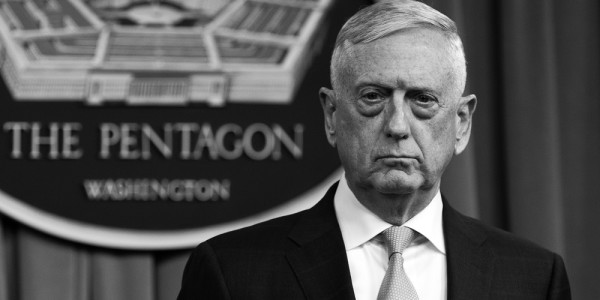

Defense Secretary James Mattis explained on Wednesday how “Operation Faithful Patriot” became the mission that dare not speak its name.
- Mattis had ordered the Defense Department to stop using the name “Faithful Patriot” shortly after Election Day. The Pentagon now refers to the thousands of service members deployed to stop Central American asylum seekers from crossing into the United States as “border support.”
- While en route to visiting U.S. troops on the southwestern border, Mattis explained to reporters that he double knife-handed the “Faithful Patriot” name because he thought it had too much of a military vibe.
- “I had given instructions: I do not want to put this mission in some arcane military terms,” Mattis said. “If what we’re doing is laying wire, don’t talk about implementing a barrier plan — that’s what we do in training. I want to talk to the American people because this is a highly politically visible issue and I want you to tell them what we’re doing.”
- “I want you to tell them we are operating in support of customs or of border police,” Mattis said. “Do not say we are supporting a federal agency. Tell them what we’re doing.”
- “So, when you saw the reporting coming out, it was my continued direction to quit using military terms,” he added. “Quit using terms that mean a lot to us and are subject to misinterpretation by people untrained at Fort Leavenworth and Command and Staff College. That’s all I changed.”
- Toward that end, Mattis has told the U.S. military not to say it is working to “secure” a location because the word can be interpreted in several ways, he said.
- “I said: ‘Talk in terms that people understand,'” he said. “It’s their country. It’s their border.”
SEE ALSO: DoD To T&P;: Stop Calling Our Syrian Border Force A ‘Border Force’
WATCH NEXT: